(Draft.)
This term I lifted from Ton Zijlstra—what is my strategy
to comb through the gigs and gigs of input I can plug
myself into on the Web? My aim here is
to keep my finger on the pulse of individual personal
activity on the unwalled Web, so my infostrat is mainly about
attempting to track and discover thousands of people.
But Ton also includes: deciding what
and how to bookmark or archive stuff, sorting through
conflicting news stories and accusations, and alternating
“periods of discovery with periods of digesting and
consolidating”.
In a way, the effort is to establish a personal internal
algorithm to help the Web survive—the infostrat. This
seems essential.
But, first, is tracking thousands of people a worthwile
effort? Doesn’t that just lead to a large, thin layer of
links for people that you really don’t know much about?
(And, thus, leading to the same kind of linkblogs that
we’ve seen over the years, which chase one novelty after
another—a giant conveyor belt that just rolls by?)
From Ton:
A useful method all through human evolution is expanding your range of
interactions by off-loading things to your environment,
and so diminishing the
amount of information you have to remember or handle at the same time.
Much like a traveller who wants to see the world, experience cuisine and
stand in front of important paintings—I want to find all kinds of people and
see if we can talk and get along and work together even. I know it’s probably not
possible to have 1,000 deep relationships. It’s sick to even discuss numbers in
this way. The only reason I say ‘thousands’ is to open myself up from my old
way—which I felt was to have only a handful of close friends. But now I am
wondering what is possible.
So now, with my aim quite clear, I think of the tools. Inately, I feel that
simple and obvious tools are best. This is a reaction to the inscrutable
algorithms we see on the social networks. If I don’t understand the workings of
the algorithm, then it is arbitrary to me. However, I know that I will need
some complexity—I already find usefulness in crafting detailed tag queries
on Pinboard.
Tools are tools because they provide agency, they let us do things that would
otherwise be harder or impossible. Tools are tools because they provide reach,
as extensions of our physical presence, not just across space but also across
time. For a very long time I have been convinced that tools need to be smaller
than us, otherwise they’re not tools of real value.
So what does it mean for tech to be ‘small’? From the essay “Small Tech
Provides Agency, Big Tech Takes It
Away”:
Technology to provide us with agency needs to be not just small, but smaller
than us, i.e. within the scope of control of the group of people deploying a
technology or method.
An example is given: ‘Facebook groups are failed tools, because someone outside
those groups controls the off-switch.’ This is a useful distinction—the tool
needn’t necessarily be small in purpose. But it must be entirely within your
control—or the group’s control. Another example: ‘Like the thermometer in my
garden that tells me the temperature, but has additional value in a network of
thermometers mapping my city’s microclimates.’
Ton has a very good summary of
agency
(a way of thinking through the purpose of the tool) and Aral Balkan has a list
of criteria for ‘small tech’ that
I think I agree with.
Now, given the goal of “find the
others”—here is my cheat sheet
summary:
- My tools must aid both discovery and digestion. (I sound like a velociraptor
here.)
- Specialized ‘digestion’ tools: RSS reader, familiar ‘planets’ like Indienews
and Indieweb.xyz.
- Specialized ‘discovery’ tools: search engines, crawlers, directories.
- Do I use my feeds as a starting point? Search engines and crawlers could
begin there. “Here is a big list of newly discovered items among the places
you frequent.”
- It’s also very important to get outside that. My instincts say that this is
the place for ingenuity, following random epiphanies and trying unknown tools
and networks, to see what shakes out.
- Encouraging the development of directories. Once a new directory emerges,
there is suddenly an expansion in reach for ‘discovery’.
- ‘Blogs’/‘wikis’ are a good tool for both, because they network the discovery
and digestion process. This is already collaborative.
- How does this improve in 2019? Well, for now, by using a hybrid blog and
wiki—to combine the reverse chronological order of a blog with the
information storehouse of a wiki. (Hypertexting)
- Right now there are stark lines between text, audio and video. Do the lines
blur somewhere? I’m far from knowing how this media comes into play.
Of course, there are people everywhere and I could spend all day on Instagram.
But I find that unsatisfying—I hate scrolling news feeds. These are not ‘small
tech’—perhaps the interface might be, but the algorithm and the network is
not. I wonder to what extent the corpypastas limit the infostrat.
Social Distance
My father:
Conversation is a sacrament.
Ton:
My filtering is not a stand alone thing in isolation, it is part of a network
of filters, yours, mine, and other people’s. My output is based on filtered
input, and that output ends up in other people’s filtered input. I treat
blogging as thinking out loud and extending/building on other’s blogposts as
conversation. Conversations that are distributed over multiple websites and
over time, distributed conversations.
h0p3:
Hyperconversation. It’s more than the usual penpalling.
The core of Ton’s infostrat is ‘social
distance’—in
a way, how deeply nested into conversation are you with this person?
I know many people, some very well, others less so, or I only know what you’ve
shared on your site recently and we haven’t met at all. The social distance I
perceive between me and you is part of the context of filtering. This is an
otherwise unspecified mix of personal, professional, and other aspects that I
am aware of with others.
In my RSS reader, I use a weight called ‘importance’: do I read this person
daily? Weekly? Do I need be notified the minute they have something new? And
my reader simply shows an overview—I actually have to go to the blog to
digest. This ‘importance’ is a misnomer, though—I think ‘social distance’ is
a better term.
Conversations prove out and strengthen the signal. They are also generators
of source material and topics that line the conversation. (I may not necessarily
converse with someone—I may just admire their art or writings, which all might
become important.)
This means that where I source information can’t be of the ‘news’ type, stuff
that pretends it is neutral. Neutral isn’t useful in a filter. Commented,
interpreted, augmented material is useful in a filter, as it adds context that
help determine its information value. I source information from individuals as
a result.
I’m not sure what to think about this. “Neutral isn’t useful.” What about
Wikipedia? What about neighborhood events? These all feel like they can
help—act as discovery points even.
Is the problem that ‘news’ doesn’t have an apparent aim? Like an algorithm’s
workings can be inscrutable, perhaps the motives of a ‘neutral’ source are in
question? There is the thought that nothing is neutral. I don’t know what to
think or believe on this topic. I tend to think that there is an axis where
neutral is good and another axis where neutral is immoral…
Who you are as a person is an essential piece of context in how to judge
information. If you’re walking on the street and a random stranger asks to
have a coffee, you interpret it very differently from when your partner
walking next to you asks you the same thing. We are all walking information
filters, our brains are very well used to doing that. So what I know socially
about you helps me interpret what you share, as it will be coloured by who you
are. Let’s call this social filtering.
Knowing people is tricky. You can know someone really well at work for a decade,
then you visit their home and realize how little you really know them. This is
worse on the Web because we are so much more concealed. On the other hand, you
can meet someone and instantly grasp a huge part of their ‘self’.
I wonder if ‘knowing someone’ drives ‘social distance’—or if ‘desire to know
someone’ defines ‘social distance’. How can we know Banksy? Is there a
conversation there? What defines my
social distance from @alienmelon or The World (a favorite band)? Maybe it’s
worse than I thought—just a momentary, fragile vein of interest…
(I think about They Might Be Giants, which was such an important band to
me as a teenager—and to all my friends as teenagers. But no one in that
group would listen to them today. Today is for other things. Some say they
haven’t aged well or that they are just for children. And I struggle to find
any part of me that would want to listen to them again. But those arguments
never stop us from listening to other things—perhaps there is a sensible,
evolutionary argument for why these types of people go away for us—like we
periodically need to clear space for new people. This ‘interest’ in some
ways a social fabric type thing: zeitgeist, (‘spirit of the times’),
this mood that effects all of us and acts as a superfilter on the culture—such
that we can all agree that Holmes & Watson was a bad film.)
So we all live on this giant graph paper and we all have coordinates in
different places—and when I look at h0p3 and I on the graph, we are way
across from each other. Except the labels are all Socialist, Mormon, Aesthete,
Atheist, Pluralist, Hikikomori, Cynic, Taco Bell Enthusiasm Levels, etc. When
we turn the paper over to the Pleonasmic Rating, we’re right there,
side-by-side, and the zeitgeist is well away.
So I think it’s instinctual. If you feel a closeness, it’s there. It’s more
about cultivating that closeness. I just need to listen to some They Might Be
Giants, as a thankyou for an old, forgotten closeness.




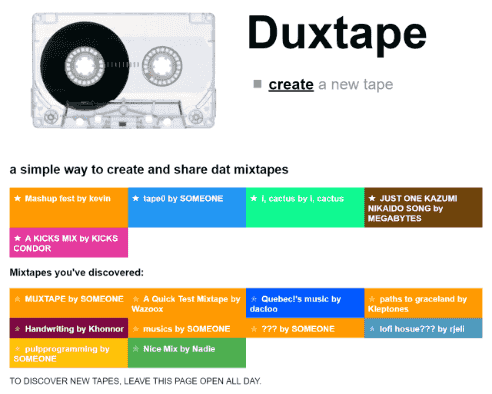
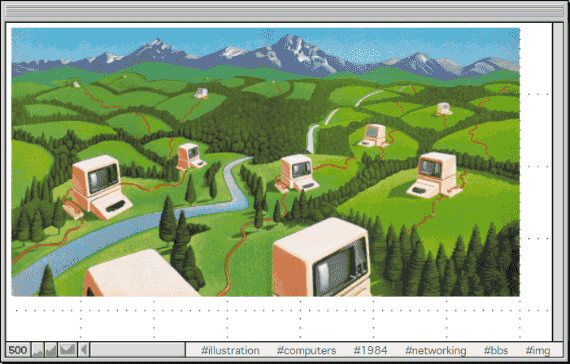

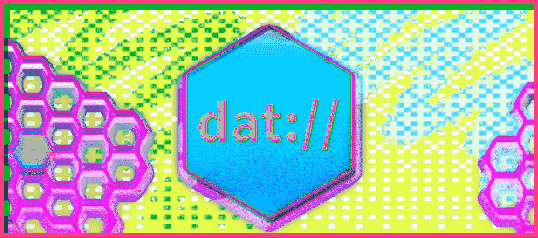
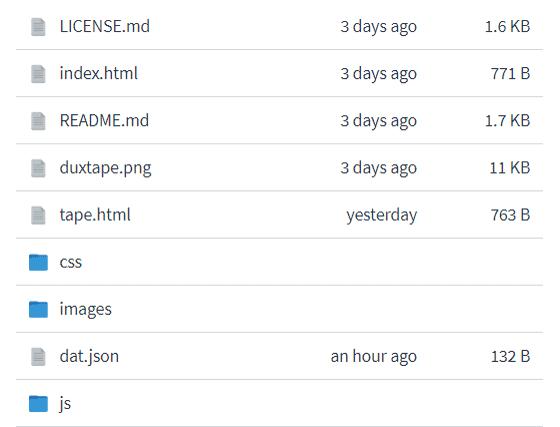
 Not that we should focus on a silo - just curious about the UX.
Not that we should focus on a silo - just curious about the UX.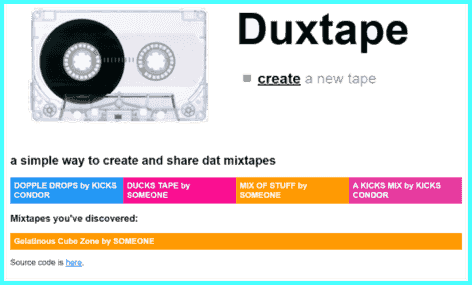
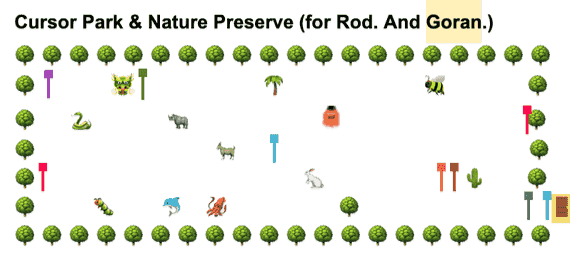
 Fraidycat can’t consume a solo RSS feed—because it has no HTML to link to.
So you’ll just get a graph and no way to view the pics. Hehehe!
Fraidycat can’t consume a solo RSS feed—because it has no HTML to link to.
So you’ll just get a graph and no way to view the pics. Hehehe!




Reply: Listening to Dux
Sweet! A few others are sharing some nice tapes on there as well. I have some improvements that I hope to throw out soon. To clean up the empty or unseeded tapes that might be on there. Glad you posted this—I’m unsure how serious to take the project.